Ready to leave behind his Helsingborg horror, Henrik Larsson sets his sights on Europe and the Premier League
Exclusive interview: Fifteen months on from the chaotic night his home-town club were relegated, Larsson wants to test himself beyond Sweden’s borders like he did as a player 25 years ago
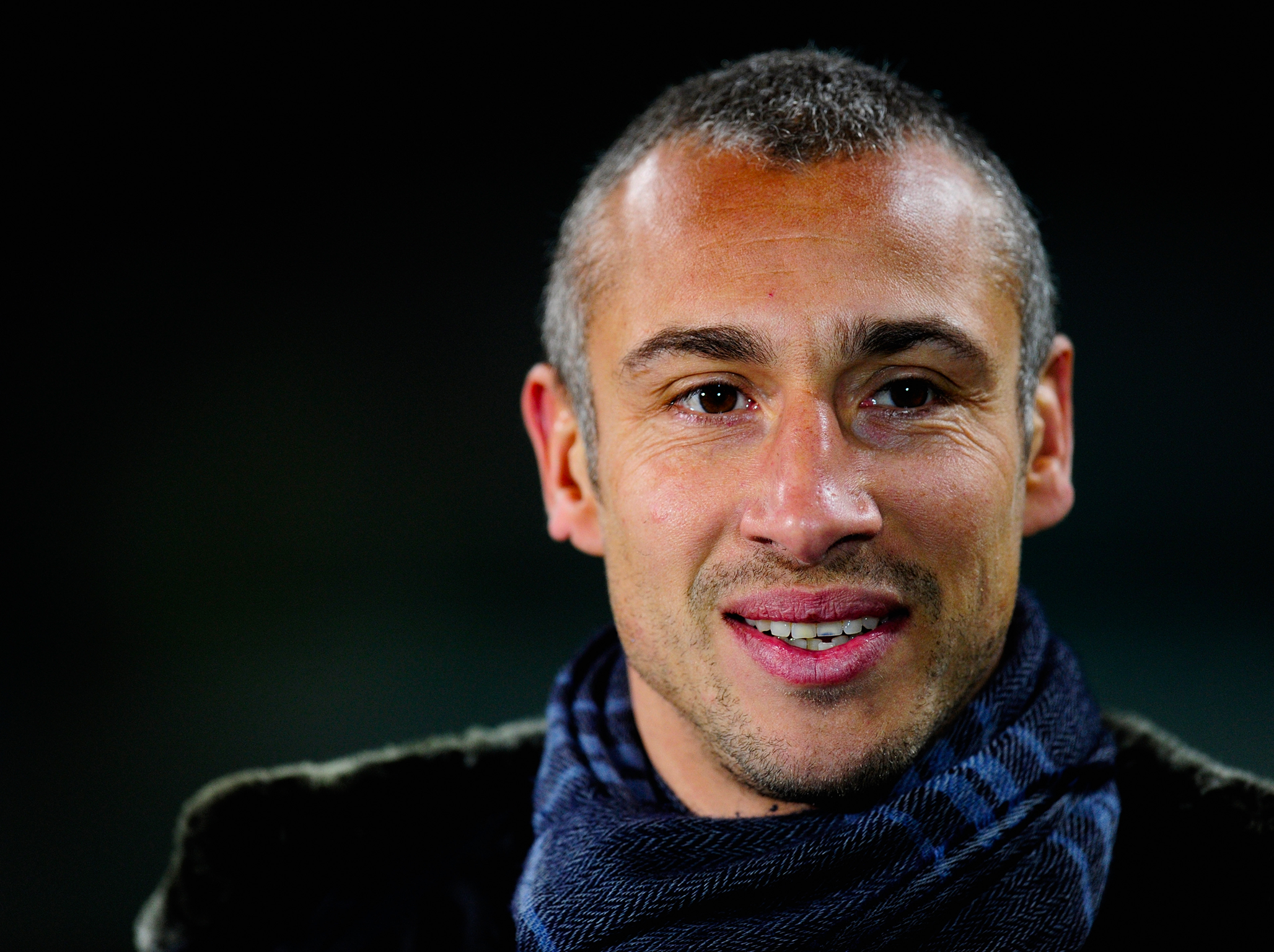
About eight minutes before Henrik Larsson’s spell in charge of Helsingborg imploded, he had been celebrating a goal. Their relegation play-off with Halmstad took place on a charged night, with the pitch cloaked in flare smoke and emotions close to the surface. In the 82nd minute as extra-time approached, Henrik’s teenage son Jordan Larsson finished off a counter-attack, sparking relieved celebrations in the Olympiastadion.
But then one Halmstad player scored a penalty, another scored the goal of his life, and the game was over. Helsingborg were relegated. Masked men surged the pitch launching corner flags and debris like spears, flares fizzling in mini fire pits on the turf. Jordan was surrounded and attacked, the shirt ripped from his back. Henrik faced them, bouncing on his toes, fists raised ready to fight, until he was finally led away. Three days later he left his home-town club, and Jordan soon followed.
Larsson has not been involved in football since that night 15 months ago. Now, as he sits in his favourite coffee shop in Helsingborg, a cafe with rickety chairs and bare walls where everyone knows him and no one bothers him, he says he has moved on and is ready for a new challenge.
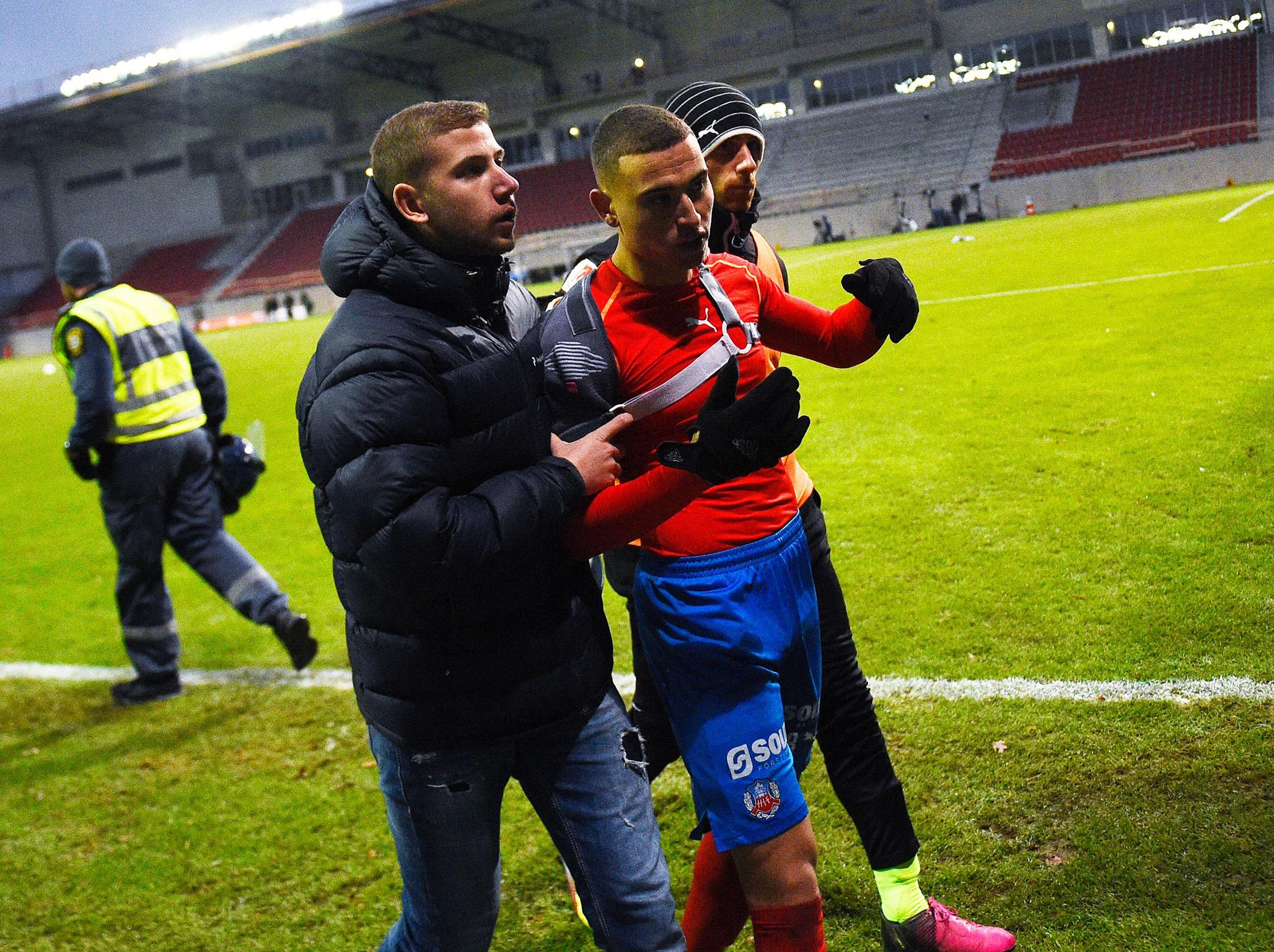
“It wasn’t the best way to part from the supporters, but that’s the way it is,” Larsson says. “It’s history. I haven’t been back and I don’t think I’ll ever come back to the club. I wasn’t happy with everything that happened that night but for me it’s over and done with – I wipe my shoulders and get on with it. Jordan says he does too and I believe him. He’s mature enough to understand that the idiots that came for him weren’t too clever.”
The idiots were eventually fined while Larsson rightly avoided punishment. The scene erupted in an extraordinary way but frustrations had been bubbling under the surface for months. When results fell away in the middle of the year, stories seeped out of a friction between the manager and his players. Larsson’s working relationship with his son was particularly divisive.
“Jordan and I were the two that handled it in a professional way,” he says. “I think that some players had a little bit of a problem with it, but that’s just because they’re not professional and they don’t know me as a person. To think my son would play just because he’s my son – that would never happen.”
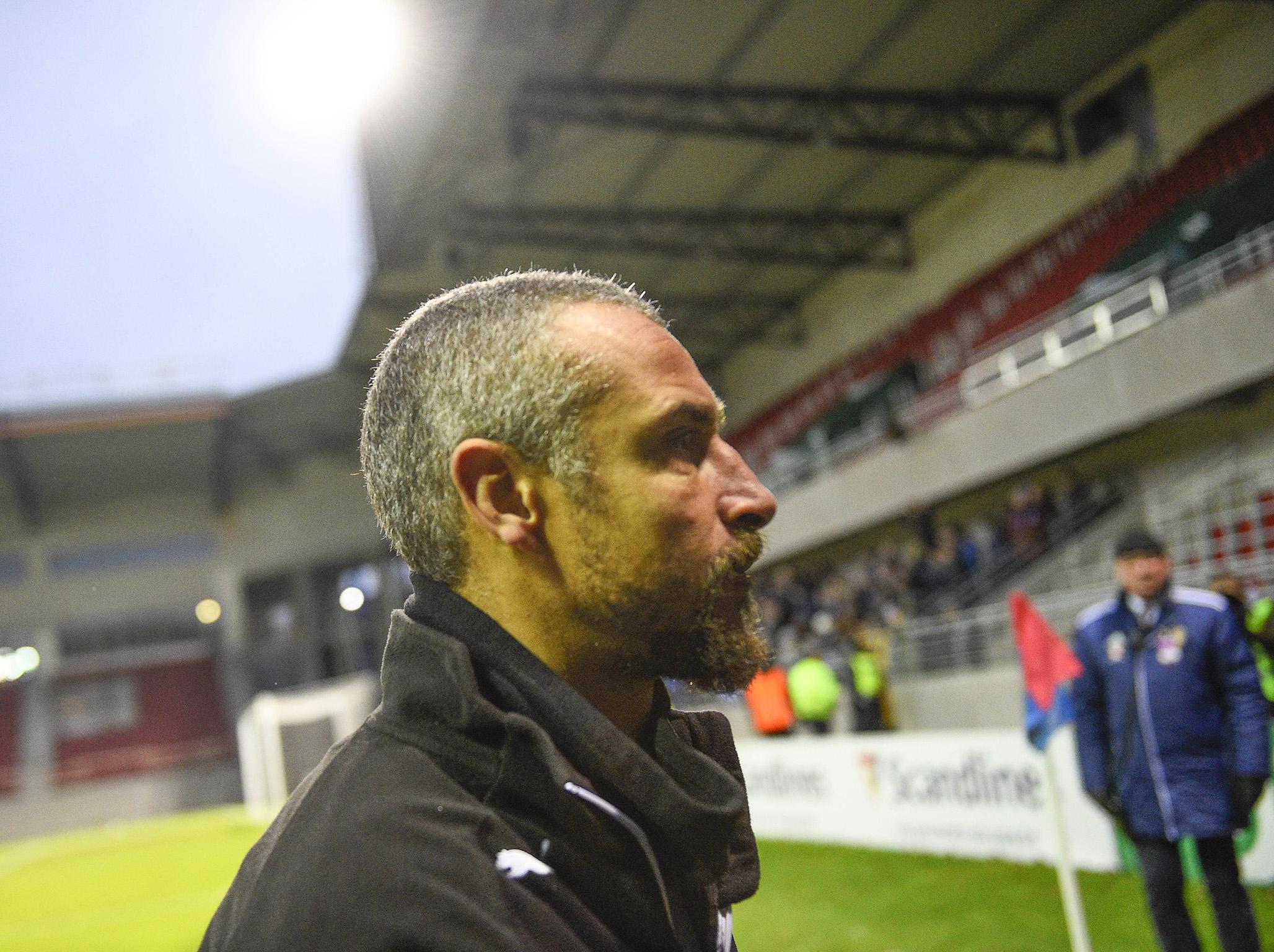
New signings were ineffective and press relations became frosty. He had achieved respectable results in his first two jobs at Landskrona and Falkenberg, and a mid-table finish in his first season at Helsingborg, but Larsson’s disastrous second year would have been enough to chasten most people’s desire for management. Instead his ambition is fuelled by it.
“This is my city, but I want to leave Sweden. I want to go out into management and that means Europe. I’ve tried managing in Sweden now with three clubs. With two clubs I’ve done all right; with Helsingborg I’m not sitting here saying I did everything right, but I didn’t do everything wrong either.”
Where does he see himself a few years down the line? “In England, somewhere. I want to be at a big team, in the big leagues again. I understand that I have to prove myself as a manager. I think I have the potential, I have a lot of knowledge to share, and I think I’m well equipped to translate my thoughts to the players. Time will tell.”
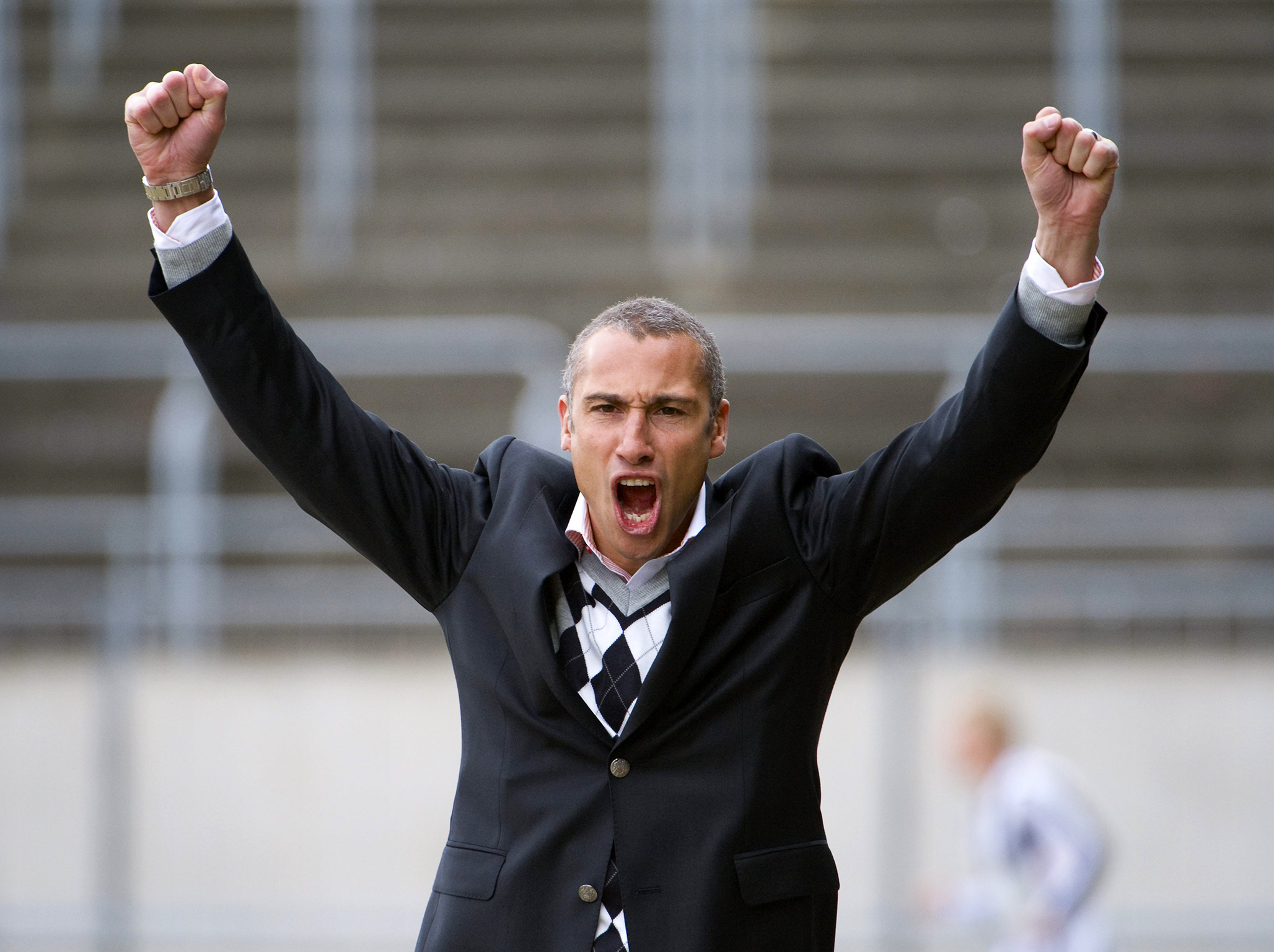
Over a couple of absorbing hours discussing topics from breaking his leg to Sir Alex Ferguson via winning the Champions League, one innocuous sentence is telling. “As a manager, it’s the same as a player: I want to see how far I can get.” It is 25 years later, his dreadlocks now replaced by short greying hair, but Larsson is back where he was at the start of his playing career: desperate to venture beyond Helsingborg’s port walls and take on the world.
***
Larsson’s unique career was full of sensational highs, but it was punctuated by several lows that would have derailed less resilient players. That resilience was ingrained while growing up on the working class side of town as the child of a Cape Verdean father. Henrik took his mother’s maiden name to fit in, but it wasn’t quite that easy. Playground racism was part of life.
“Back then it was different in terms of integration,” Larsson says. “Even though I wasn’t that dark I was a little different, because it wasn’t common to see foreign people in a small city. Everybody knew straight away who you were.”
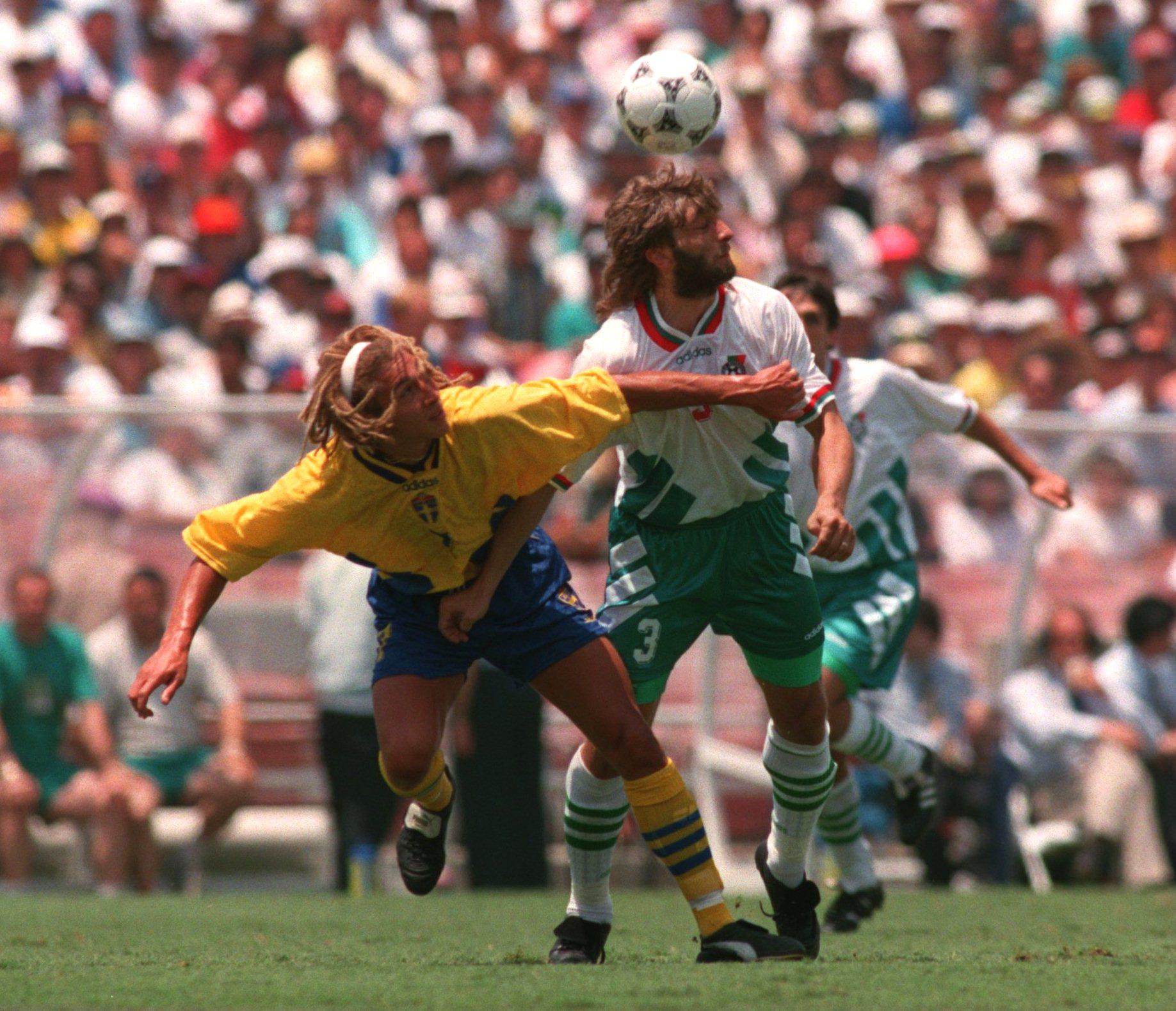
As a teenager he played for the local Hogaborg before stepping up to Helsingborg, dragging them into Allsvenskan – the top flight – for the first time in 24 years. He moved to Feyenoord and then Celtic, but even at his prolific title-winning best, there was the sense that no amount of goals would satisfy his critics. “They would say: ‘Yeah he can do it in Scotland, but can he do it in the big leagues?’ It was a bit annoying because if it was that easy, why didn’t everybody score so many goals?”
His lowest moments at Celtic came in the Uefa Cup: losing the 2003 final to Jose Mourinho’s nascent Porto side, despite scoring two expertly taken headers; and suffering a career-threatening leg break eight months before Euro 2000. “I remember lying there counting on the pitch: ‘November, December… May. Oh, there’s a chance I’ll play in the Euros’.” He did play, and scored, and reached extraordinary levels the following season, scoring 58 goals for club and country in 59 games and winning the European Golden Boot. The injury had made him hungry and desperate to make up for lost time.
At 32, he finally stepped away from Celtic Park. “As a kid I dreamed of playing in a warm land with a swimming pool. I said that in an interview at the end of Celtic to see who was interested and we got about 30 clubs – but I never dreamed of getting Barcelona. Stepping into the dressing room was an amazing feeling. On the lockers they used to name the guys using yours before you. Going around and seeing those names: Laudrup, Stoichkov, Romario. It was incredible.”
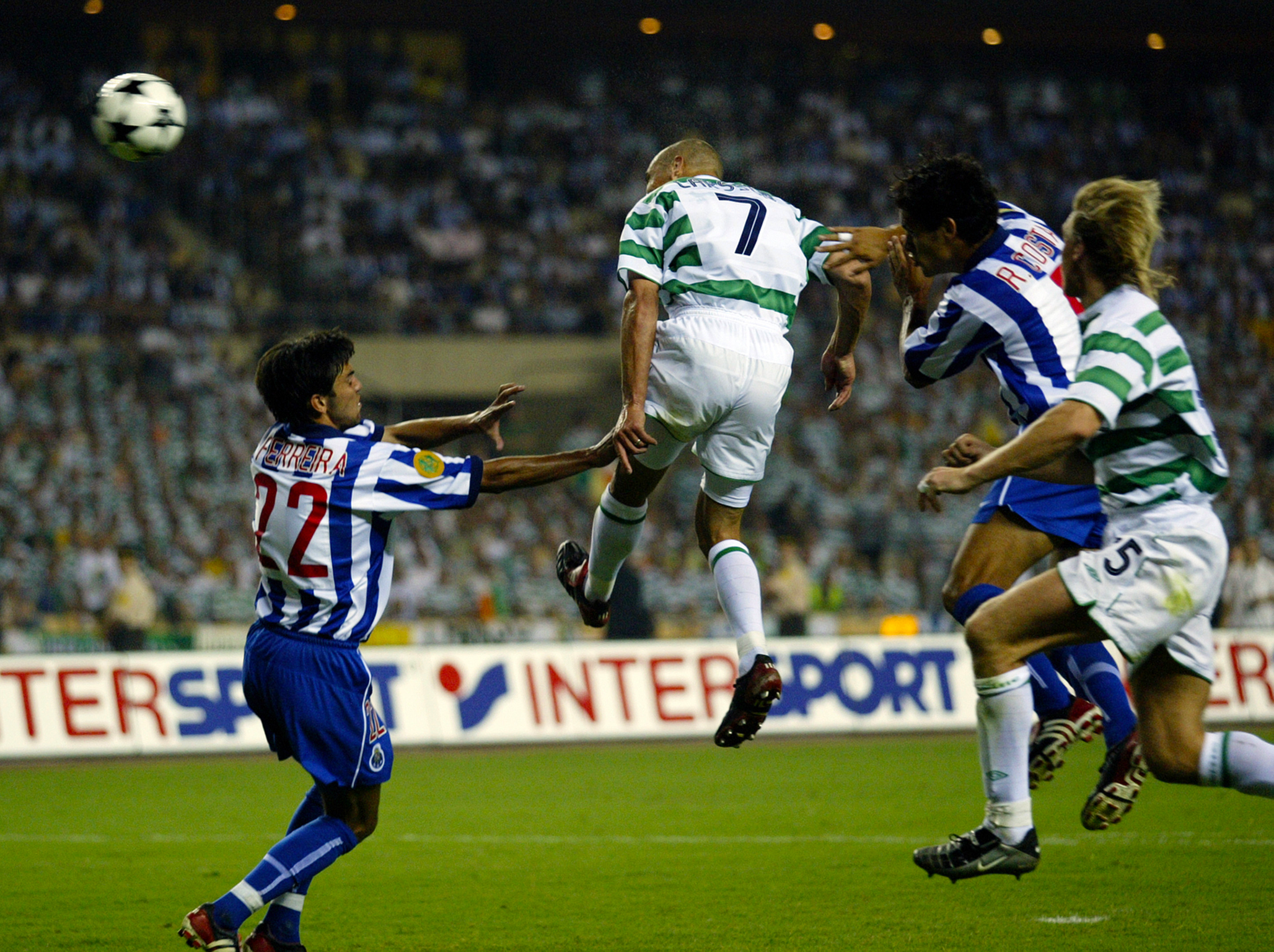
His first European final had been a low point, but the second one was the peak of Larsson’s career, coming off the bench to make two goals as Barcelona came back to beat Arsenal 2-1, and become European champions for the first time in 14 years. “It was the only goal [Juliano] Beletti scored for Barcelona. Everybody went straight over and jumped on him. I didn’t want to go because I’m a little claustrophobic so I stood aside, but that pass, it was a great feeling. We fought hard for that.”
After that triumph he returned to Helsingborg to score more goals, but in 2007 he had one last blast outside Sweden in a brief loan spell at Manchester United. By then Larsson was 34, his powers fading, but Sir Alex Ferguson tells a story of his final match at Old Trafford which captures his impact. Larsson covered every blade of grass, and when he walked back into the dressing room at full-time the United squad gave him a standing ovation. He had only been there 10 weeks, only played 13 games, only scored three goals, but the way he carried himself left an indelible mark.
Larsson played under Frank Rijkaard, Lars Lagerback, Kenny Dalgish, and most successfully Martin O’Neill who Larsson says taught him how and when to motivate players, and to trust them. But his admiration for Ferguson is higher still. “I learned a lot from Sir Alex and the way he was with players. It didn’t matter if you were younger or older, if you weren’t doing your job, you were told. There was a huge respect from the players, obviously. He was absolutely fantastic towards me and my family.”
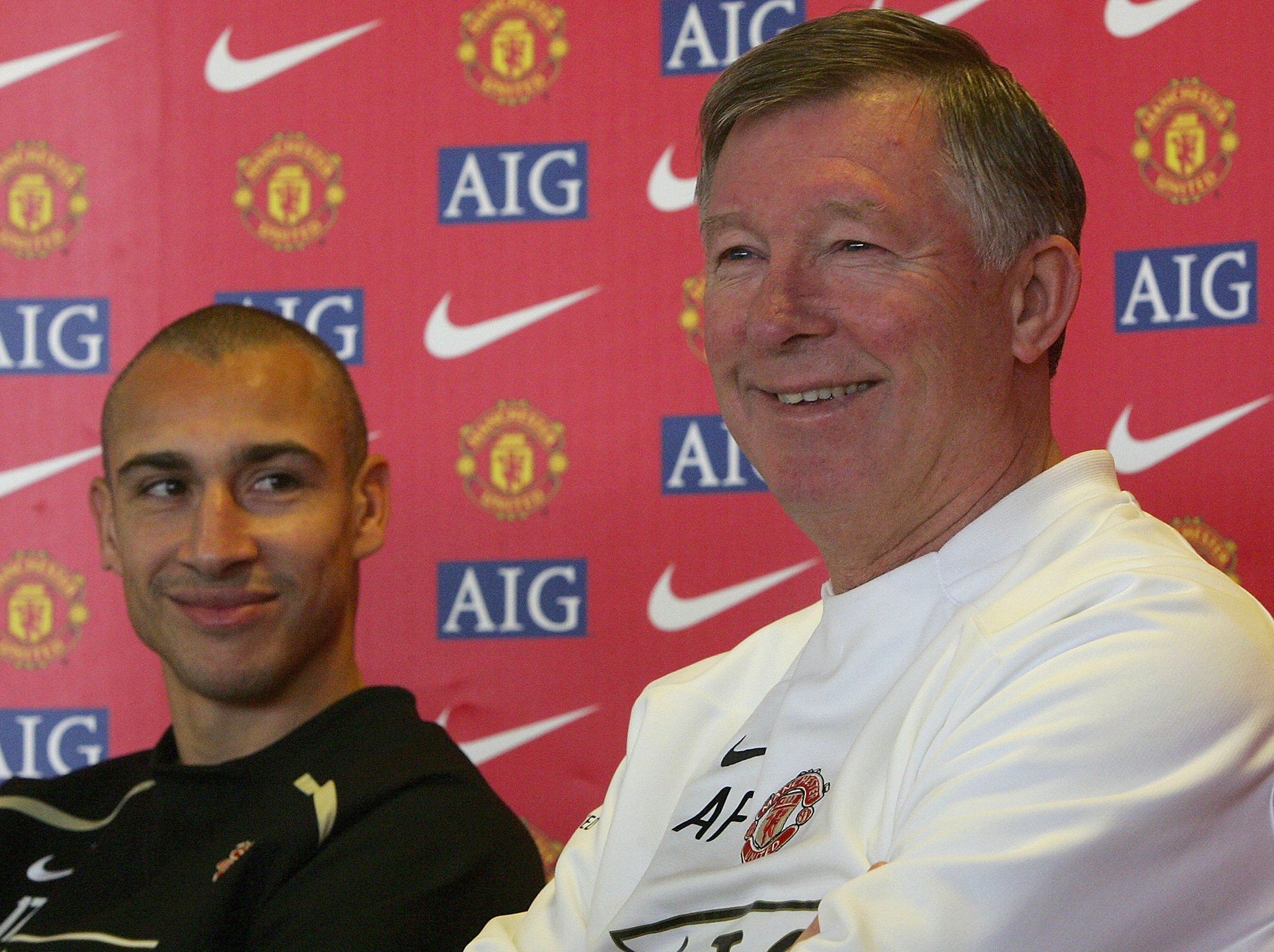
Larsson’s experience in the Premier League was brief – too brief to qualify for a winners’ medal – and he is determined to return to the English top-flight as a manager. He considers the Premier League the pinnacle of European football, and he has set his coaching ambitions against the heights he graced as a player.
***
In Helsingborg he is not Henrik Larsson, he is ‘Henke’, an affectionate nickname that also sums up the place’s small-town nature. Speak to any taxi driver or shop assistant and if they don’t know Henke, they know someone who does. They talk with pride about their greatest export, just as Larsson talks more passionately about Helsingborg’s beautiful summers than just about anything else. “You must walk down to the beachfront before you leave,” he insists.
This is the city he grew up in, the city he loves, where he returned every summer from Rotterdam or Glasgow or Barcelona. He could easily choose to stay, to do media work or just be close to his family. But he gives off a sense that life is unresolved, that there are more critics out there to prove wrong, more obstacles to overcome.
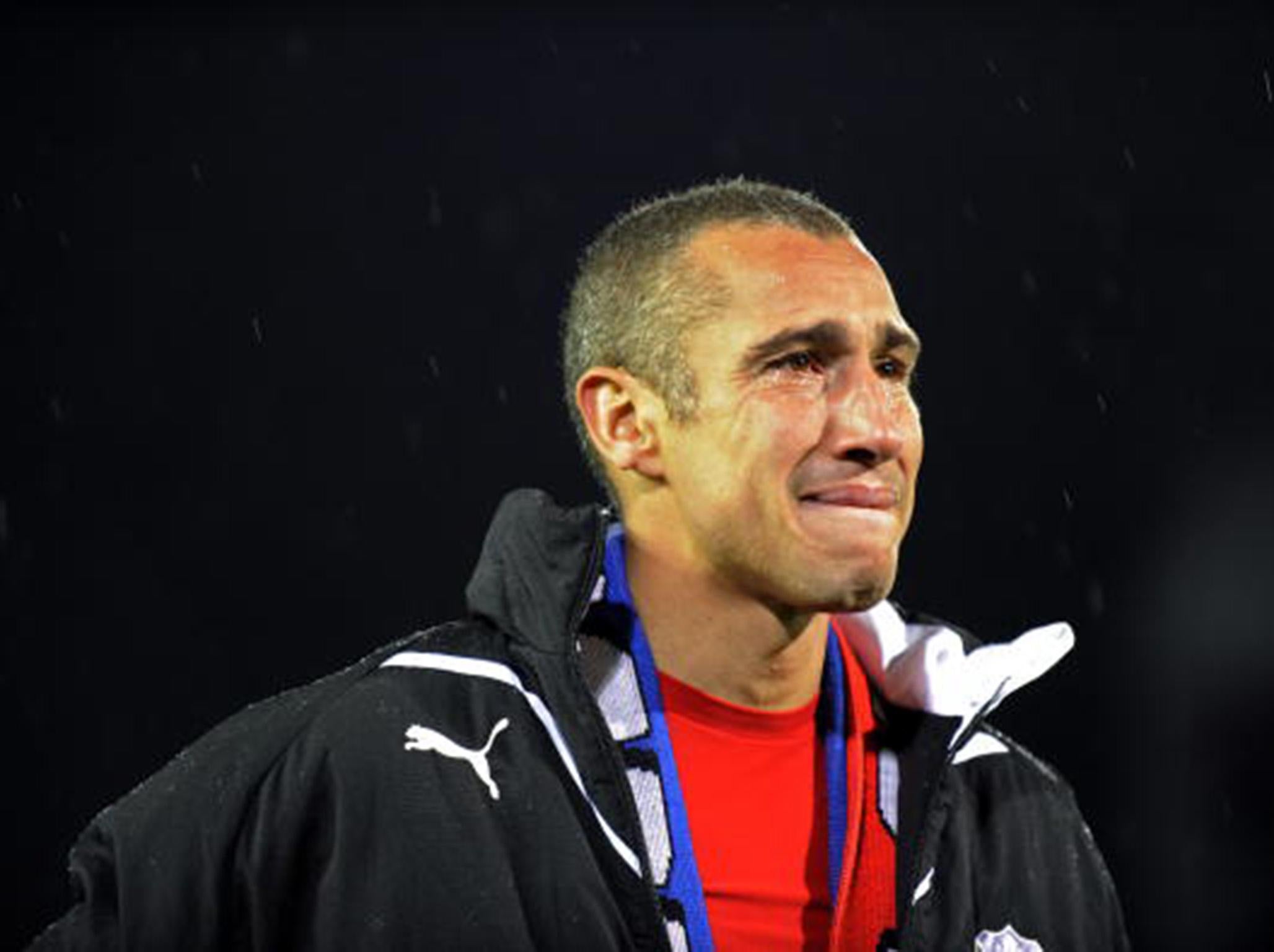
He was known as the King of Kings in Glasgow, and he pauses for a moment when asked whether he is a king here too. “I’m not a king in Helsingborg. I’m just a normal person.” That is not entirely true; not everyone has their own statue on the beach peering out over the ocean. Later I check out the curious metallic figure, which looks more like an elderly man crossing the road than an elite athlete, but its fixed stare across the sea seems appropriate as Larsson contemplates his next journey.
“I don’t look back at what I achieved. I try to look ahead so I’m never satisfied,” he says. “Once you’re satisfied, it’s finished.”
Join our commenting forum
Join thought-provoking conversations, follow other Independent readers and see their replies
Comments
Bookmark popover
Removed from bookmarks